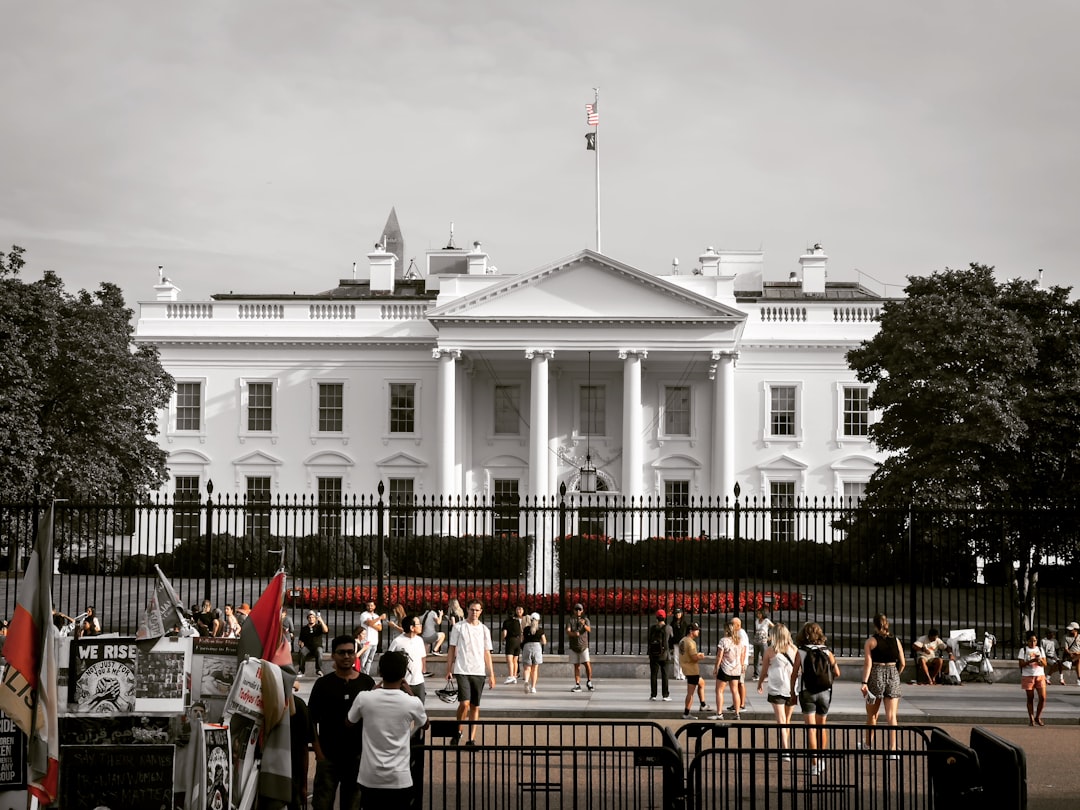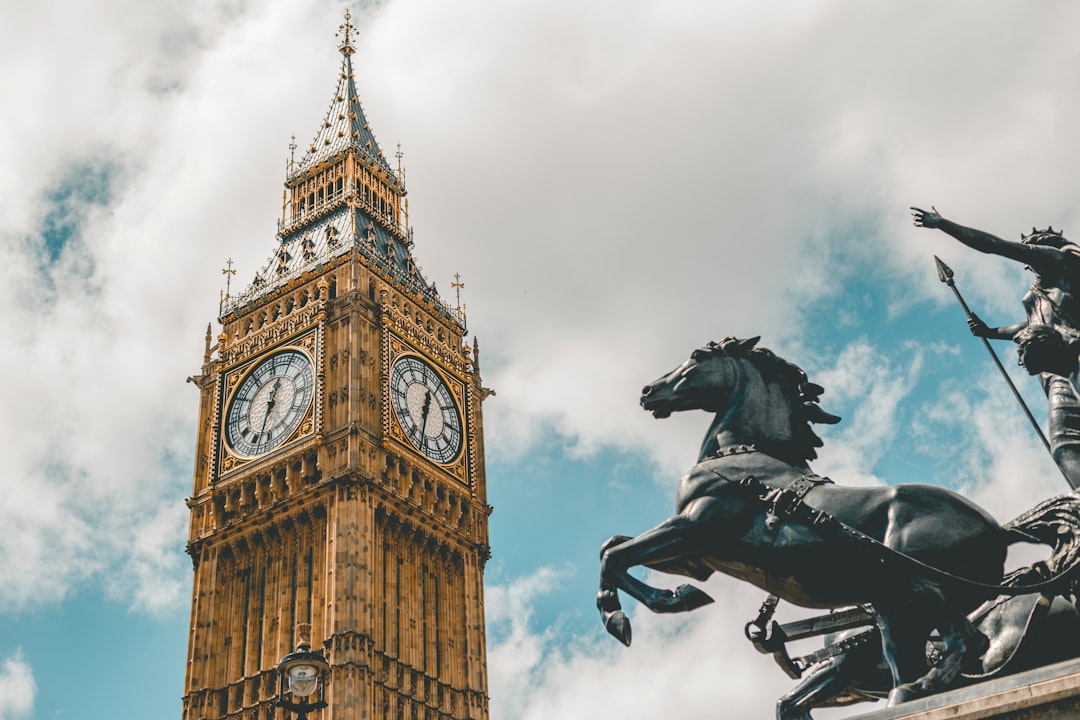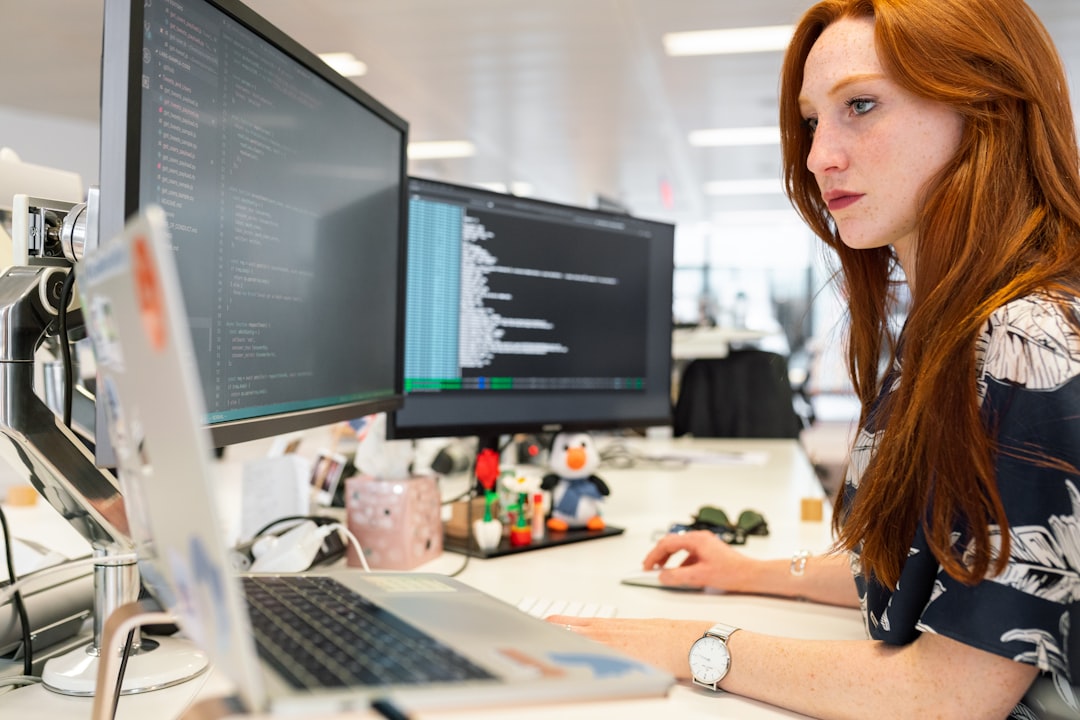- Creator Briefing
- Posts
- The Brands deepfaking creators
The Brands deepfaking creators
#138
Issue #138 | Your reading time this week is 7 mins. 45 secs.
Welcome back to the Creator Briefing.
Here’s just some of what I’ve been thinking about this week:
Is push to ban TikTok in U.S. cooling? And, if it succeeds how might it impact the UK creator economy?
A TikTok creator says a brand used one of her videos to create an AI deepfake clone of her then used the clone to front an advertisement.
Google researchers have found a way to turn photos into videos
The level to which the working class is underrepresented in creative industries
YMU creates uber division merging Entertainment with Social
Another anecdote of Meta throttling sponsored content
🙏Can you help me out? Please consider sharing this newsletter with a friend, colleague or student who might be interested in creator marketing. And, if you were forwarded this newsletter, sign up here to get your own weekly copy.
Is push to ban TikTok in U.S. cooling?
This week the U.S. House of Representatives passed a bill which could ban TikTok in the U.S. Next stop: the Senate where, if successful, the act will then be signed by President Joe Biden to become law.
TikTok hits on two of the U.S.'s current core concerns: protecting the country from Chinese influence. And, protecting teens from online harm.
But don’t underestimate two key factors: The nearing of the presidential election and the Trump effect.
The whole ban or sell furore kicked off during President Trump’s administration. He’s since pulled a volte-face and now says a social media ecosystem without TikTok would further empower Meta, telling CNBC’s Squawk Box last week “I consider Facebook to be an enemy of the people.”
With Trump as the presumptive 2024 Republican nominee, it’s likely Republican senators will fall in line with his thinking meaning a vote would fail.
How would a U.S. TikTok ban impact the UK creator economy?
Media Leader’s Jack Benjamin takes up the TikTok story and asks UK-based influencer marketers how a U.S. TikTok ban might impact the UK creator economy.
Billion Dollar Boy’s Europe CEO, Thomas Walters told Media Leader, “the potential ban could impact UK creators — especially macro-influencers whose large following may extend beyond the UK to US audiences too. A ban could mean losing valuable engagement, which could impact on the scale of future brand deals.”
I told the publication that shuttering TikTok would mean marketers and creators double down on Instagram Reels and YouTube Shorts - and was quoted in the article saying “budgets would shift rather than be lost” in such an event.
ADVERTISEMENT
#AD SUMO are Influencer Marketing and Talent Management recruiters. If you work within the Creator Economy and would like to expand your team, or if you’re seeking a new opportunity, we would love to hear from you. Visit: www.sumo.london
Influencer Marketing Show becomes CreatorFest
The Influencer Marketing Show has rebranded as CreatorFest.
The revised show will now house a dedicated stage for creators. The aim: to help influencers professionalise and become more business savvy.
One of the show’s other two stages will be devoted to sharing best practices within creator marketing. The third stage will take a peak over the brow of the hill towards the tools and tech of tomorrow’s industry to be harnessed by progressive marketers.
Brand deepfakes a creator and puts her in advert
In a TikTok titled ‘storytime: AI stole my likeness and created a deepfake of me’ creator Michel C Janse says that a brand used one of her previous TikToks to create an AI deepfake clone of her. Janse’s likeness was then used by the brand to front an advertisement.
The creator says she was only made aware of the ad when some of her followers shared it with her online. She had not worked with the brand, nor licenced her likeness to them.
Janse says the deepfake was particularly hurtful as it was trained on a particularly vulnerable video where she shares stories of past trauma. The advertisement for a pill combatting erectile dysfunction purports to be Janse in a piece-to-camera explainer video talking about the difficulties her partner has suffered with impotence.
“So this ad was me in my bedroom in my old apartment in Austin, wearing my clothes talking about their pill. The only thing that wasn’t me was the voice”.
Janse goes on to tell viewers: “we are now entering this era of living our lives online, where we need to question everything.”
We have seen politicians deepfaked by bad actors in a bid to influence voter behaviour, but as the technology becomes cheap, easy-to-access and easy-to-use we will see more incidents where both creators’ livelihoods and reputations are damaged at the hands of AI deepfakery.
Google researchers turn photos into photorealistic videos
Google researchers have built an AI system which turns photos of people into photorealistic videos of that person talking and moving in sync. See here and here for examples.
The tech, called VLOGGER, takes a single image of a person and generates head motion, gaze, blinking, upper body movement, hand gestures along with lip movement all locked with audio of them speaking.
The tech presents a leap forward for creators who want to dub their videos into other languages seamlessly or for brands who want to create virtual human assistants to answer FAQs.
The tech would also enable creators to elevate some sample audio narration into a short photorealistic video clip.
VLOGGER’s tech isn’t quite there yet. Currently, the generated videos are short and set against a static background.
The mannerisms and speech patterns of the videos’ subjects are realistic - but are yet to traverse the Uncanny Valley in terms of being indistinguishable from real humans.
The flipside is that as this technology becomes more easy-to-access as well as easy to use it opens up further the opportunities of deepfakes and disinformation. See story above.
YouTube tells creators to disclose their AI content
YouTube is rolling out a new tool in Creator Studio requiring creators to disclose to viewers when realistic content – content a viewer could easily mistake for a real person, place, scene, or event – is made with altered or synthetic media, including generative AI.
The new label is meant to strengthen transparency with viewers and build trust between creators and their audience.
When to disclose image manipulation
Some examples of content that require disclosure include:
Using the likeness of a realistic person: Digitally altering content to replace the face of one individual with another's or synthetically generating a person’s voice to narrate a video.
Altering footage of real events or places: Such as making it appear as if a real building caught fire, or altering a real cityscape to make it appear different than in reality.
Generating realistic scenes: Showing a realistic depiction of fictional major events, like a tornado moving toward a real town.
When no need to disclose
Creators won’t need to disclose when synthetic media is unrealistic and/or the changes are inconsequential.
These cases include:
Unrealistic content, such as animation or someone riding a unicorn through a fantastical world
Colour adjustment or lighting filters
Special effects like background blur or vintage effects
Beauty filters or other visual enhancements
The initiative builds on YouTube's approach to responsible AI innovation announced in November, which includes disclosure requirements and labels, an updated privacy request process, and ensures responsibility is built into all our AI products and features.
Countdown begins on Influencer360

Fronted by leading industry publications, PRWeek and Campaign, Influencer360 is a one-day conference devoted to uniting influencer marketing practitioners from both top brands and agencies.
Together delegates will discuss the latest opportunities and threats affecting our sector.
For the second year running Haymarket Media has selected the Influencer Marketing Trade Body (IMTB) as its official association partner for Influencer360 - its prestigious summit.
John Harrington, PRWeek UK Editor said of the renewed partnership:
"PRWeek and Campaign’s Influencer360 is back, bigger and better - and in London for 2024. With the influencer landscape constantly evolving, from new tech to new platforms, we are excited to announce a partnership with the Influencer Marketing Trade Body for the second year. With the expertise of IMTB founder Scott Guthrie, alongside great brands and agencies, we're gearing up to elevate this event to new heights.”
Here’s what you need to know:
Date: 10th April 2024
Location: Ham Yard Hotel, London, W1D 7DT
Working class underrepresented in creative industries
Effective influencer marketing is representative not only of ourselves but also of the culture and values of the moment. If we misrepresent our audience, we risk alienating that audience. And our brands will suffer as a consequence.
Diversity within influencer marketing does not start with the creators identified and selected for brand collaborations - rather it starts inhouse or within the agency.
A new study from FleishmanHillard and social mobility charity Creative Access has found that working-class people are significantly underrepresented at senior levels within the creative industries.
74% of respondents believed it was harder for working-class people to land a role in the creative industries.
70% agree that class impacted how someone was perceived by their peers, affecting career progression.
73% said working-class representation is lacking most at senior level – intriguingly just 46% of upper and upper-middle-class respondents believe the same.
44% of upper and upper-middle-class respondents said that they believed social mobility in the UK was easier than ever. Tellingly, just 16% of working-class people polled thought similar.
Meta offers price drop of ad-free subs in Europe
European Commission concerns over Meta’s ad-free subscription service have prompted the Facebook and Instagram owner to offer to reduce the cost of the service.
Meta has as offered to almost halve its monthly subscription fee from €9.99 to €5.99 a month.
According to Reuters, the price cut follows mounting criticism from privacy activists and consumer groups about Meta's no-ads subscription service in Europe, which critics say requires users to pay a fee to ensure their privacy.
How Generative AI is Influencing the Creator Economy
Billion Dollar Boy has published a report illustrating the impact Gen AI has on the creator economy.
Key topics addressed in the report include:
How generative AI is positively disrupting the creator economy
Brand opportunities and proven strategies for integrating generative AI into creator marketing
Consumer, marketer and creator perceptions and adoption
The potential challenges to responsible AI implementation
Mr Beast: 1000:1 odds on being a successful creator
This week MrBeast posted to X (formerly Twitter) urging readers to carefully consider the downsides to becoming a full-time creator before pulling the pin on their other endeavours.
“It’s painful to see people quit their job/drop out of school to make content full-time before they’re ready. For every person like me that makes it, thousands don’t. Keep that in mind and be smart plz.”
Creators: diversify income streams to limit risk
The Metro ran a story this week picking up on creators quitting the industry in pursuit of ‘normal’ jobs. Members of the Influencer Marketing Trade Body were asked to contribute to the article. Both BENlabs and PrettyGreen provided excellent points of view. I explained to journalist Jess Lindsay why it’s important for creators “to diversify income streams to limit risk exposure and to seize opportunities … .”
DECLARATION: - I am the director-general of the IMTB.
‘Beast Games’ comes to Amazon Prime
We noted back in Creator Briefing #131 that MrBeast was near to inking a deal with Amazon’s Prime Video. Now we know more about the show. According to WaPo the Amazon MGM deal includes:
TV competition game show (think Squid Game)
1,000 contestants will compete for a $5 million cash prize - the largest single prize ever offered on the telly box or streaming channel.
Show to be available in 240 countries and territories
The deal is rumoured to be worth $100m by Puck News
Why it matters: Interestingly tech analyst Benedict Evans foreshadowed such a deal in his annual presentation at the start of 2023.
Titled: The New Gatekeepers Evans asked what a TV show even is today Evans argued that MrBeast had a comparable total viewing time to a top 10 Netflix show.
“Gen Z is the first generation to really not remember a world before social media, which feels like something we don’t really acknowledge enough. But I mainly credit the pandemic, the TikTok boom, and the GameStop pump all happening somewhat simultaneously, permanently shifting the balance of power from old irl institutions to whatever makes you feel a certain way on your various feeds.”
Epic adds its hyperrealistic MetaHumans to UEFN
Epic’s MetaHumans — hyperrealistic human characters that can be animated using only an iPhone — is now available in UEFN (Unreal Editor for Fortnight).
YMU sells to Permira Credit
Permira Credit has become YMU’s new majority shareholder in a financial restructuring deal worth £60m.
According to financial filings seen by Deadline, Permira has taken full control of YMU’s newly-created parent company Yokozuna Newco Limited, with Trilantic Europe exiting the agency after five years, according to financial filings.
YMU is reportedly now on the acquisition trail itself.
YMU creates uber division merging Entertainment with Social
YMU has merged its Entertainment and Social divisions to form a single division called Global.
The global entertainment division will have a 40-strong headcount with a roster of 110 clients, from both traditional and social media backgrounds.
The division will be led by Paul Worsley, Darren Worsley, and Lucy Loveridge supported by Claire Dundas and Melanie Rockcliffe.
Lucy Loveridge is a past guest on my podcast - the Influencer Marketing Lab. You can check out the episode on Spotify here.
Jim Meadows, Director, DTC Ventures at YMU, said of the new division: “Think of it as TV meet social, but it's more than that. It's a convergence of the industry at large. Where the future is headed,” adding that for clients it means “being at the forefront … reaching audiences not just widely but deeply.”
Another anecdote of Meta throttling sponsored content
Award-winning content creator, Stephanie Yeboah took to Threads this week to lament the poor performance of her last couple of brand collaborations. Yeboah lays the blame squarely on Instagram which she believes is throttling sponsored content - presumably so that brands are forced to pay the platform to amp the content:
“My last two sponsored reels were shown to 3000 people on IG lmao. I have 236k followers.
This lack of reach is absolutely insane; and tbh I think a lot of us are tired of being gaslit into thinking that our work isn’t good enough. Especially when we are consistent with our content and the comments/engagement from our followers confirms this.
What the hell is going on over there at Instagram?”
What did you think of this week's newsletter?Honest feedback helps me create the best possible newsletter for you each week |




Reply